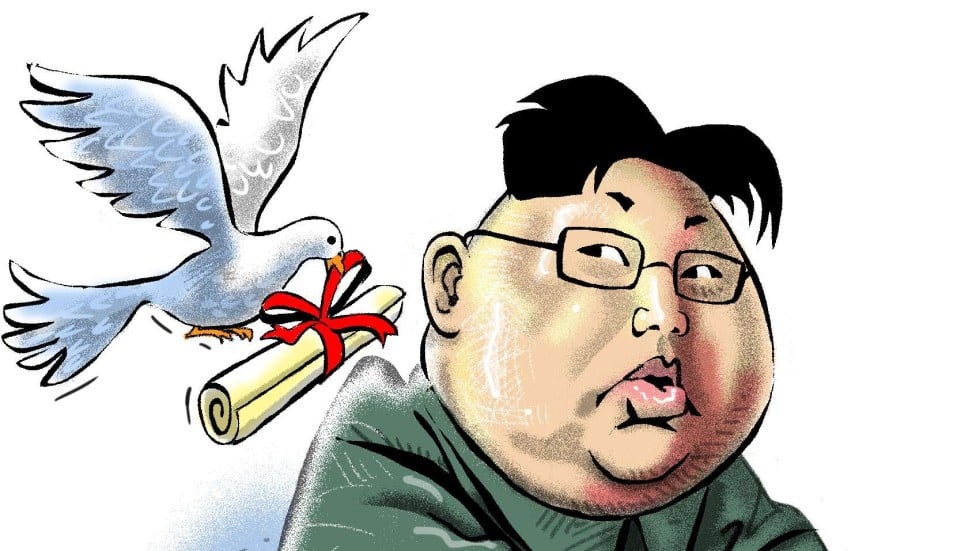
America and South Korea Need To Stop Being Stubborn and Consider Foreign Minister Wang Yi’s Recommendation
Also on March 8, Nikki Haley, U.S. ambassador to the United Nations, told reporters that America needed “some sort of positive action taken by North Korea before we can ever take them seriously,” while the South Korean representative Cho Tae-vul was more direct in his response, remarking that this was not the time to explore a time-out or a dialogue with North Korea.
However, the two diplomats’ comments do not mean that China’s recommendation only has a shelf life of a few hours. In fact, Wang Yi’s proposal is the only way to resolve the North Korean nuclear problem other than going to war. It is very difficult to make America, North Korea, and South Korea both take a step back, but when war is on the brink, and if neither side wanted to fight, then they would have to choose the route of compromise, as China has pointed out.
Of course, if both sides were determined to move toward total destruction, then war would be an option. China is really hoping that the Korean Peninsula will not go in that direction, but if North Korea and South Korea thinks nothing of war and America does not think war is cumbersome, then let them fight it out.
Many people in America and South Korea do not seem to appreciate China’s efforts as a go-between with North Korea. An article in The Washington Post claims that China wants to cajole America and North Korea into negotiations, and The New York Times sees Wang Yi’s recommendation as China’s latest attempt to gain the initiative on the North Korean nuclear problem; the publication seems to think China enjoys its role as a broker of regional rights.
To the Chinese, the North Korean nuclear problem was not caused by North Korea alone. The North Koreans’ pursuit of nuclear weapons is the wrong route, but America and South Korea are the primary forces in pushing Pyongyang down a wayward route. America and South Korea want to stop the results coming out of North Korea’s nuclear development, but are unwilling to cut back the pressure on North Korea; they just want Pyongyang to cower to them, and when North Korea doesn’t yield, they blame China for not helping.
America is used to having its way as the only superpower, but what is laughable is that Seoul is also acting gung-ho and war-crazy. Seoul is the one most afraid of war on the Korean Peninsula, and its lack of courage has been well-known to Pyongyang for a long time. Similarly, Pyongyang might seem aggressive, but it does not want to launch war lightly.
Many Chinese have seen through the false front put up by America, South Korea, and North Korea. If Pyongyang started the war first, it would be annihilated, and if America and South Korea started the war first, then their losses would be immense, which would be a huge liability to America with very murky strategic advantages. Neither side wants to go to war.
Yet many tragedies in history did not become reality based on human volition. Even if America, South Korea and North Korea do not want war, the probability for war is high when there is round after round of escalation.
Wang Yi’s idea is to cut the vicious cycle on the Korean Peninsula and to stop the speeding trains. Braking suddenly does not feel comfortable, but it does prevent the worst outcome. We believe America, South Korea, and North Korea will consider China’s recommendation; they are not verbalizing it, but they may circle around this war-avoiding option.
For China, it would be best if we could avoid war and have a nuclear-free Korean Peninsula. America, South Korea, and North Korea should be realistic while pursuing the maximum advantage for themselves, as in, at the very least, leaving a little room for the other to maneuver. They need to evaluate whether it is better to take one step back to achieve a peaceful solution, to engage in war to defeat the other, or to have mutual destruction.
Wang Yi’s recommendation is on the table, China’s intention to be the point person has also been expressed, what follows is Pyongyang and Seoul’s fate, and whether the new American leader is bold enough to make a peaceful judgement. If the two speeding trains have to collide, then there is nothing China as the point person can do. Therefore, China needs to have a plan to prepare for war on the Korean Peninsula. A new Korean War probably will not happen, however, the situation on the Korean Peninsula is akin to a runaway horse, and China will not allow it to develop and threaten its national interests. If the Korean Peninsula were to play rough, China would not be absent in the game.

